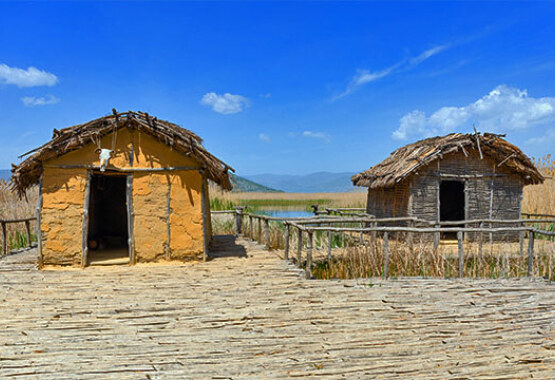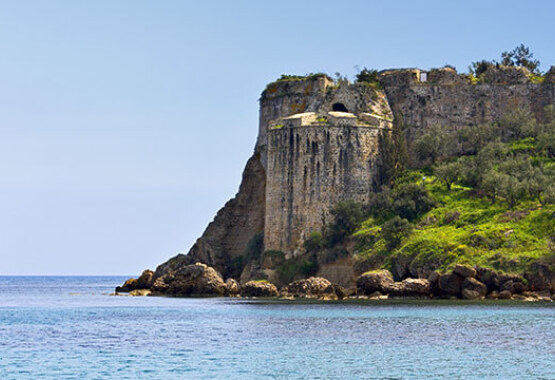
RETHYMNO
Exploring the castle leads you to a journey in the past, in the times of the Venetian rule. The visitor enters Fortezza through the magnificent eastern (main) gate and is led, via a gallery, to its interior only to face a fairytale-like locale: bastions with battlements, powder magazines, water cisterns, silos for food storage, all excellently renovated, get the visitor acquainted with Fortezza’s defensive nature, setting off the well organised surrounding structure. From Agios Nikolaos’ bastion, there is an amazing view of the Venetian harbour as well as of the city of Rethymno.
It is also worth mentioning that Fortezza used to be the administrative as well as the religious centre of Rethymno; in the castle’s “square” you can visit Palazzo Pubblico, i.e. the “Rector’s” (the Commissioner’s) Hall as well as the Councillors’ residence where one of Rethymno’s two Councillors lived, while the other remained downtown to be able to uphold the order. The bishop’s residence is located in the same area as Agios Nikolaos (Agios Nikolaos) cathedral – turned into a mosque during the Turkish occupation – and the chapel dedicated to Agios Theodoros Trichinas (Agios Theodoros Trihinas). In the open space, outside the castle lies eastward a pentagonal fort that used to protect Fortezza’s central gate during the Turkish domination.
Nowadays it houses the city’s Archaeological Museum with great finds on display exclusively from archaeological sites in Rethymno’s district.
Visit Fortezza and listen to the past, wander in paths laden with historical recollections and get to know the city’s eventful history.
Fortezza
A Venetian landmark in Crete
Northward of the city of Rethymno, stands an imposing Venetian fortress known as Fortezza, a centuries-old buffer that has protected the city against attacks from the sea, having also been the locals’ haven in the event of a siege. Fortezza is Rethymno’s landmark and its most important monument, built in the late 16th century in order to reinforce the city’s defense. Its dominating position on Paleokastro hill complements that extra charming picture of the city that always seduces visitors.Exploring the castle leads you to a journey in the past, in the times of the Venetian rule. The visitor enters Fortezza through the magnificent eastern (main) gate and is led, via a gallery, to its interior only to face a fairytale-like locale: bastions with battlements, powder magazines, water cisterns, silos for food storage, all excellently renovated, get the visitor acquainted with Fortezza’s defensive nature, setting off the well organised surrounding structure. From Agios Nikolaos’ bastion, there is an amazing view of the Venetian harbour as well as of the city of Rethymno.
It is also worth mentioning that Fortezza used to be the administrative as well as the religious centre of Rethymno; in the castle’s “square” you can visit Palazzo Pubblico, i.e. the “Rector’s” (the Commissioner’s) Hall as well as the Councillors’ residence where one of Rethymno’s two Councillors lived, while the other remained downtown to be able to uphold the order. The bishop’s residence is located in the same area as Agios Nikolaos (Agios Nikolaos) cathedral – turned into a mosque during the Turkish occupation – and the chapel dedicated to Agios Theodoros Trichinas (Agios Theodoros Trihinas). In the open space, outside the castle lies eastward a pentagonal fort that used to protect Fortezza’s central gate during the Turkish domination.
Nowadays it houses the city’s Archaeological Museum with great finds on display exclusively from archaeological sites in Rethymno’s district.
Visit Fortezza and listen to the past, wander in paths laden with historical recollections and get to know the city’s eventful history.




